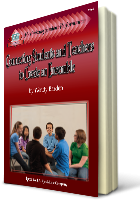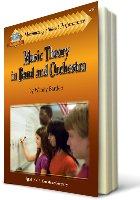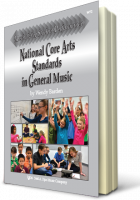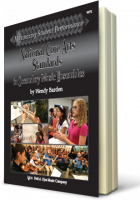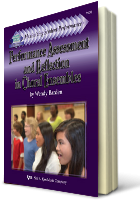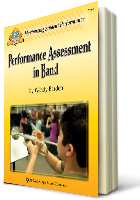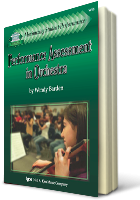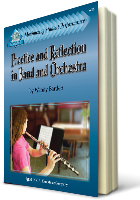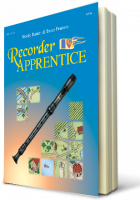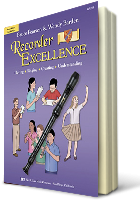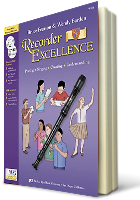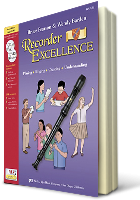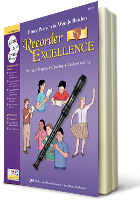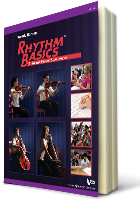Summer Break: Renew, Refresh, Rekindle
Hard to believe, but another school year is almost over. Maybe not so hard to believe are the dark circles under your eyes, the extra ten pounds you’ve gained or lost, the clutter on your desk or in your home… all symptoms of another stressful—maybe even exhilarating—year. Even in the best of years, the schedule most music educators keep September through mid-June is exhausting!
Perhaps you’ve read The 7 Habits of Highly Effective People: Powerful Lessons in Personal Change. I’m reminded (not often enough) of the vignette Covey uses to introduce Habit 7: Sharpen the Saw.
Suppose you were to come upon someone in the woods working feverishly to saw down a tree.
“What are you doing?” you ask.
“Can’t you see?” comes the impatient reply. “I’m sawing down this tree.”
“You look exhausted!” you exclaim. “How long have you been at it?”
“Over five hours,” he returns, “and I’m beat! This is hard work.”
“Well, why don’t you take a break for a few minutes and sharpen that saw?” you inquire. “I’m sure it would go a lot faster.”
“I don’t have time to sharpen the saw,” the man says emphatically. “I’m too busy sawing!” (p. 299)
I see a lot of myself in the person working in the woods. While I’m looking forward to the promise of summer break, I need not—should not—wait until then to “sharpen the saw.” Year round, we need to take time to renew, refresh, and rekindle. What could that look like, sound like?
Here is advice about refreshing, finding balance—“sharpening the saw” —from many who have walked in our shoes.
- Take care of yourself. Sit down and enjoy nutritious meals. Exercise regularly. Get a good night’s sleep every night.
- Enjoy the quiet. Linger with a cup of coffee on the deck. Read a book. Meditate. Keep a journal. Walk in the park.
- Get back to your hobbies and other things you enjoy doing. Finish that knitting or woodworking project you’ve put aside. Dig in the garden. Travel. Take your bike out for a ride.
- Enjoy music as an audience member. Catch a concert in the park. Get tickets for a local drum corps event. Check out the grandstand shows at the county or state fair.
- Volunteer. So many local organizations can use our help, even for an afternoon. Make it a family affair.
- Reconnect with family and friends. Play catch. Enjoy an afternoon at the pool. Take a road trip. Plan a picnic.
How much better would I be if I continued some of these things through the year? A rhetorical question.
Yes, and… At this time, I also look forward to the promise of the new school year. What can I do differently—better—to help my students learn more and perform at a higher level?
Towards that end, summer is the perfect time to engage in personal professional development. Read the books purchased at last winter’s music conference. Attend a new music clinic offered by a local music dealer. (This is often a great opportunity to meet and talk with composers or authors, too.) Seek out a workshop on a topic that interests you—from standards-based grading through the music “lens” to applications for your classroom iPads. Follow up on that promise of having coffee with a colleague.
In all of this, take time to reflect.
Thanks for pausing with me for a few minutes in your busy week. Have a good one!
_________
Allsup, Randall Evertt. “Stress and the Music Teacher: Preventing Burnout,” Teaching Music, 12 (5), 50-54.
Cooper, Lynn G. “Music Teacher Burnout is Preventable” session handout at the 2004 Midwest Clinic, Dec 15, 2004. http://www.midwestclinic.org/user_files_1/pdfs/clinicianmaterials/2004/lynn_cooper.pdf (accessed March 22, 2015)
Covey, Stephen R. The 7 Habits of Highly Effective People: Powerful Lessons in Personal Change (25th Anniversary Edition). New York: Simon & Schuster (2013).
Davis, Katherine et al. Keep the Fire Burning: Avoiding Teacher Burnout. Lexington, KY: The Educator’s Room, LLC (2013).
Raessler, Kenneth R. Aspiring to Excel: Leadership Initiatives for Music Educators. Chicago: GIA (2001).



